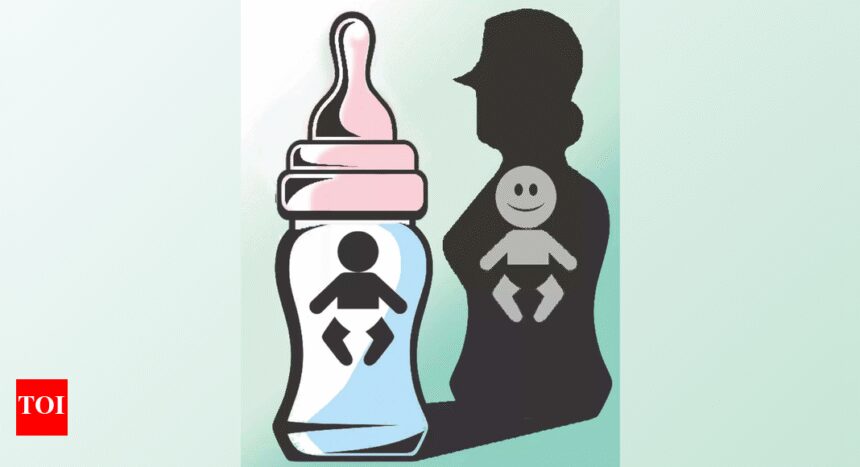Violations of the Infant Milk Substitutes (IMS) Act, aimed at shielding breastfeeding practices from aggressive marketing by baby food corporations, have notably increased recently. Activists attribute this surge to governmental neglect regarding previous infractions.
Current violations primarily involve baby food companies sponsoring seminars and conferences for healthcare professionals, including doctors who promote baby food through social media channels. The IMS Act strictly forbids any direct or indirect sponsorship or funding from baby food companies for events involving health workers.
Reports from 2025 reveal a growing trend of infant formula companies backing conferences and enlisting social media influencers—ranging from doctors to celebrities—to endorse their products. The Breastfeeding Promotion Network of India (BPNI), a non-profit tasked with monitoring compliance with the IMS Act, has submitted multiple complaints to both the Ministry of Women and Child Development and the Ministry of Health, as doctors are implicated in these activities.
The IMS Act extends its restrictions beyond healthcare professionals. It prohibits anyone from advertising or promoting infant foods; however, instances of social media influencers endorsing infant formula and feeding bottles have been uncovered. Notably, companies like Danone operate Aptaclub with numerous doctor members, while a pediatrician has been seen advertising a baby food brand on social media. Additionally, Abbott has sponsored a forum for dieticians in Delhi and a pediatricians’ conference in a luxury hotel in Dehradun. Recently, Amul promoted a liquid ready-to-feed infant formula, while Nestlé financed a doctors’ meeting at a five-star hotel in Gurgaon.
Nestlé maintains that it is compliant with the IMS Act, asserting that Section 9 should be interpreted in its entirety and is conditioned upon the promotion of infant milk substitutes and infant food products. BPNI counters this by citing Section 9, which addresses inducements to healthcare workers to promote infant milk substitutes. The Act defines promotion as encompassing both direct and indirect methods, stipulating in subsection 2 that producers, suppliers, or distributors of infant milk substitutes or related products must not offer financial benefits to health workers or their associations, including funding for educational events.
Dr. Nupur Bidla, Central Coordinator of BPNI, emphasized, “Section 9 was designed to avert any form of indirect promotion of baby food brand names through health professionals. It is clear—there is no free lunch for health professionals. Any activities associated with or beyond such sponsored events warrant investigation.”
In response, Nestlé reiterated: “We firmly assert that there were no discussions or activities related to promoting infant milk substitutes or infant foods at any event. Our corporate-sponsored events for healthcare professionals, including nutritionists and dietitians, are intended solely for skill development and knowledge enhancement in the digital era and do not contravene any law.”
The recent influx of violations by younger pediatricians has prompted the Indian Academy of Pediatrics (IAP), the largest pediatric association in India, to issue an advisory on September 19. IAP Secretary General Yogesh N. Parikh noted that the IMS Act prohibits any infant milk substitute manufacturer from sponsoring conferences. He urged members to comply with the law and refrain from participating in any events or programs that contravene the IMS Act, thereby ensuring adherence to regulations that safeguard children’s welfare.
As of now, the Ministries of Women and Child Development and Health have not responded to inquiries from Times of India. The article will be updated should they provide comments.










